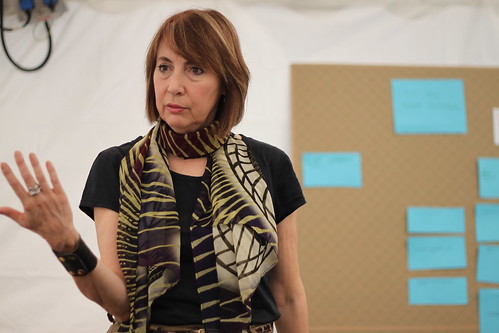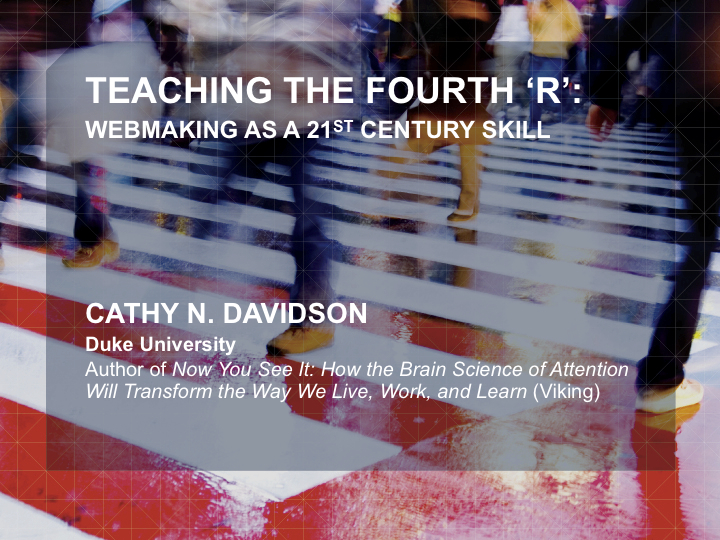Technical difficulties last time around forced us to reschedule this event. Please join us on our new date and time:
A virtual “fireside chat” with author Cathy Davidson:
Thursday, Feb 16 | 1pm PST / 4pm EST
Sign up on Lanyrd here

How do we teach the web?
You’ve heard of “the three ‘R’s:” reading, writing and ‘rithmetic.
But author and noted academic Cathy Davidson says the 21st Century demands a fourth: “algoRithms,” as in the underlying threads and logic that shape our digital lives.
More than just “teaching people how to code,” Cathy sees “algorhtmic thinking” and webmaking as a vital antidote to the passive, assembly line model that still dominates most traditional education.
“Algorithmic thinking:” iterative, process-oriented, constructive
As Cathy argues recently in the Washington Post and in her most recent DML blog post:
We need to reform our learning institutions, concepts, and modes of assessment for our age. Now, anyone with access to the World Wide Web can go far beyond the passive consumer model to contribute content on the Web…. That Do-It-Yourself potential for connected, participatory, improvisational learning requires new skills, what many are calling new “literacies.”
Like other literacies, algorithmic thinking is foundational, “a set of rules that precisely defines a sequence of operations.” She sees it as the opposite of the “bubble-thinking” ingrained through decades of highly standardized, multiple choice tests. “It provides an alternative to fact-based mastery and proposes, instead, iterative, process-oriented, constructive, innovative thinking.”
What is marvelous about algorithmic thinking and Webmaking is that you can actually see abstract thinking transformed into your own customized multimedia stories on the Web, offered to a community, and therefore contributing to the Web. Algorithmic thinking is less about “learning code” than “learning to code.” Code is never finished, it is always in process, something you build on and, in many situations, that you build together with others. Answers aren’t simply “right” guesses among pre-determined choices, but puzzles to be worked over, improved, and adapted for the next situation, the next iteration.

Mozilla’s Michelle Levesque: “Teaching algorithmic thinking”
In her own blog post response to Cathy’s argument, Mozilla’s Michelle Levesque considers how we can put Cathy’s principles into practice here at Mozilla, as we focus on creating tools and resources for a new generation of webmakers. Michelle will join Cathy to discuss how we can all work together to create a more web literate planet. We hope you’ll join us!


Please note that in the Algorithmic Thinking slide, only the first bullet actually describes algorithmic thinking. The rest just talk about web-related skills and technologies. Algorithmic thinking has more to do with abstraction, problem-solving, pattern-matching, and similar general techniques, not the specifics of developing for the open web.